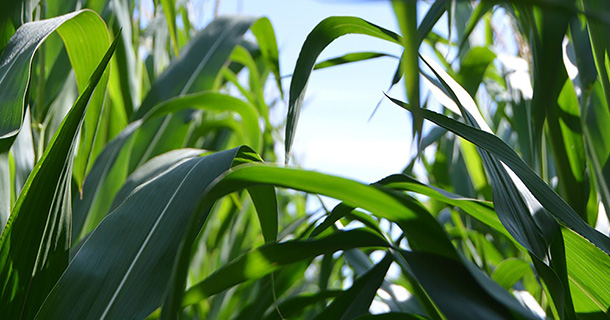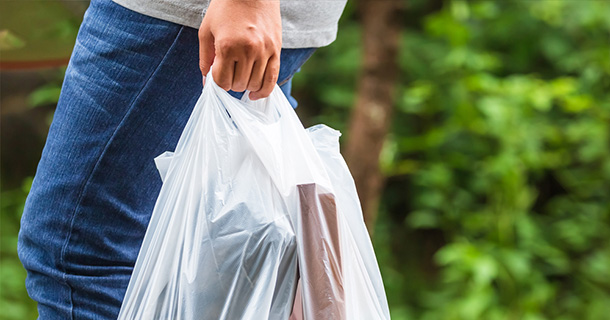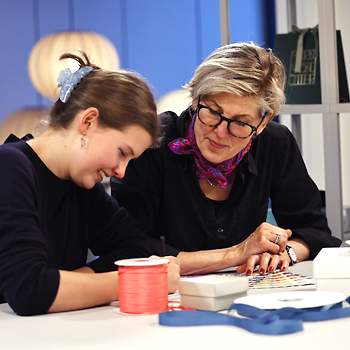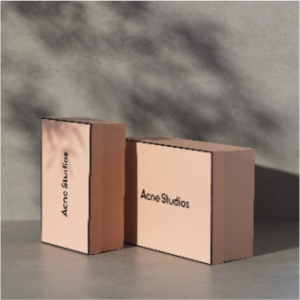Bioplastic Bags
Cut down CO2 emissions with
eco-friendly bio
bags
- Article, Environment & Sustainability, Store packaging
Bioplastic bags for a cleaner environment
Biobags produced from bioplastics are the natural alternative to traditional plastic bags made from fossil fuels. Several of our customers choose biobags, due to their greener profile without compromising on the unique properties of traditional fossil bags. By choosing bags made from bioplastics, you will get bags and packaging with a reduced carbon footprint.
We produce biobags that meet the strict requirements for certification. In other words, we ensure the quality of the bags are to your liking.


Get a climate-friendly brand
There are several benefits to using bioplastic bags. One of them is the ability to market your company as being climate-friendly. Studies show that consumers want eco-friendly packaging. By branding climate-friendly packaging, you can achieve higher customer satisfaction, as consumers are increasingly demanding eco-friendly packaging.
Reduce CO2 emission with bioplastics
One of the great advantages using bioplastics, is the reduced carbon footprint. Studies show that bioplastics emits 3 times less CO2 than fossil based plastics with the same amount of production. It would be advantageous from an environmental standpoint to use bioplastics instead of traditional plastic. The plants used to produce bio-plastic absorb CO2 from the atmosphere during cultivation which reduces the carbon footprint. There are several advantages to choosing bags made from bioplastics; what these advantages are also depends on what kind of biobag you use.

Which biobag to choose?
- Green and recyclable – which we call a bio-recyclable bag.
- Green and compostable – called a bio-compostable bag.
Of the two types of bag we produce, you should consider whether you want bags that can be re-cycled into new bags, or whether you want compostable bags. For example, the bio-recyclable bag is made of sugar cane. It is not compostable, but can be included in the existing recycling procedures and melted into soft plastic. The bio-compostable bag is primarily made from degradable and compostable starch which, for example, is made from thistles, corn or sunflowers. This type is not included in the existing recycling procedures, as the material is compostable and therefore degradable.



Bio-recyclable bags can be used to create new bags
The bioplastics used in the production of the bio-recyclable bags are often sourced from sugar cane. As mentioned earlier, this give a smaller carbon footprint compared to traditional plastic bags, where the material is sourced from fossil fuels. Like traditional plastic bags, they can be recycled. The bio-recyclable plastic bag contains the exact same properties as an ordinary plastic bag. This applies to both function and aesthetics. It is also indistinguishable from ordinary plastics. Only through a carbon-14 test is it possible to determine whether the plastic is bio-based . The amount of bio-material in the bags varies. It is possible to get bags that contain upwards to 100% bio-material. We will help you find the material that best suits your needs.
Bio-recyclable bags do not pollute the recycling process
The bio-recyclable bag is recycled in the same existing recycling systems also used for fossil plastic bags. Consumers and businesses can throw this type of bag into the recycling streams, where new plastic bags are made from the old.
Bio-compostable bags break down into humus
Like the bio-recyclable bag, the bio-compostable bag is indistinguishable from a traditional plastic bag. Bio-compostable bags have been mentioned a lot in media lately due to technological advances making degradation in nature possible. Bio-compostable bags are in other words suitable for the disposal of bio-waste. By using bio-degradable bags for bio-waste, you ensure that the recycling facilities receive the correct type of waste. Using bio-compostable plastic together with bio-waste, you ensure that both waste and bag are composted. Bio-degradability and compostability are highly dependent on the environment. This is due to the fact that every environment (compost, soil, water) has different temperatures and microorganisms. The rate of the bio-degradation process therefore varies from place to place.

Certifications serves as your assurance of quality
Certifications are important at Scanlux Packaging. Most of our products are certified, and you can feel safe and secure when ordering our eco-friendly products. We continuously develop and improve our range. This is always done in a manner which protects the environment. Our product development is always of the best quality.
What certifications are offered for bio-compostable bags?
Scanlux Packaging offers two types of certification for the bio-compostable bags. These are “OK Compost” and “OK Compost HOME”. In short, the difference between these two certifications is:
- ”OK Compost” refers to compost bags that are to be exclusively composted in industrial composting facilities (at temperatures between (55 and 60 ° C).
- ”OK Compost HOME” certifies that the compost bags can be composted at lower temperatures, so they can be used on the compost pile in your home garden, hence their name ”HOME”.
The bags are broken down into CO2, water, and biomass.
An important consideration lies in the decomposition qualities. Can decomposition take place in nature, or it necessary that degradation takes place in an effective decomposition process in an industrial composting facility? Both certifications comply with the European EN 13432 standard.
Who is responsible for the certifications?
TÜV AUSTRIA (previously Vinçotte) is a certification organisation approved by European Bio-plastics. TÜV AUSTRIA can award the Seedling logo to products that are in accordance with EN 13432. As the bio-compostable bags are associated with the OK Compost and Seedling logo, you are able to brand your compostable products with authority on the European market.



Climate-friendly packaging with logo printing
Climate-friendly packaging with logo printing
We have more than 30 years experience supplying bags with logo and print for the retail industry. Since the beginning, we have focused on branding and sustainable packaging.
You are always welcome to contact us and have a non-obligatory discussion about your options
Get a non-binding quote here.Let's talk
We would like to hear from you if you have any question or need a quote. Fill out this form and one of us will get it touch with your shortly.
Other stories
ARTICLE
Reusable bioplastic bags are best for the environment
Dive into the developments of recyclable bioplastic bags and read how they are a win for the environment.
ARTICLE
Important things to consider when buying eco-friendly and sustainable e-commerce packaging
The global retail industry is constantly changing. In particular, the e-commerce market is booming more than ever before.
ARTICLE
Do you want to protect the environment?
Whether you use environmentally certified packaging materials or not, we suggest 3 ways in which you can protect the environment while saving money.






